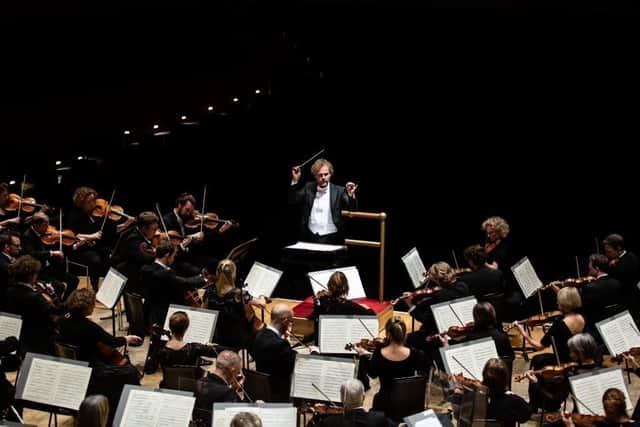Music review: RSNO & RSNO Chorus, Glasgow Royal Concert Hall
RSNO & RSNO Chorus: Verdi Requiem, Glasgow Royal Concert Hall ****
First performed in a Milan church in 1874, and immediately followed with repeat performances in the Italian city’s iconic opera theatre, Verdi’s Requiem portrays its visionary sacred message unashamedly through secular channels – massive, red-blooded chorus and orchestra, offstage fanfares, and a quartet of impassioned operatic soloists squeezing every ounce of emotion out of an exhaustive 90 minutes.
Advertisement
Hide AdAdvertisement
Hide AdAs such, it was a dramatic powerhouse perfect for this close-of-season spectacular by the RSNO, while also, through its reflective opulence, providing a fitting occasion for the orchestra to commemorate the life of its former double bassist John Clark, who died last summer.


Typically, music director Thomas Søndergård did not view Verdi’s colossus as an opportunity to throw caution to the wind. That is not his way. Ever cool, calm and calculated, he engineered a performance guided by perceptive definition, natural pacing, patient phrasing and shrewd balance (always a critical factor in a temptingly brass-heavy work).
If that cooled the ardour of certain big-thrill moments – the gathering brass flourish of “Tuba mirum spargens sonum” opened more apologetically than persuasively – it was nonetheless refreshing to hear nuggets of often overlooked detail shine through, such as fine-tuned snatches of woodwind commentary normally subsumed in the wash, or the chorus’s ability to project its theatrical reactions and complex fugues with unforced precision.
The job was made easier for the RSNO Chorus – solidly prepared by chorus director Stephen Doughty, with added voices from his East Lothian-based Garleton Singers and Royal Conservatoire of Scotland students – as Søndergård’s clear, crisp direction ensured a powerfully inclusive response.
Illness meant that two soloists had to be replaced, tenor Peter Auty and soprano Gabriela Scherer joining the magnificent mezzo Jennifer Johnston and stentorian bass George Andguladze. Despite Auty’s over-light upper notes and Andguladze’s flattish intonation, they formed a heart-warming, impassioned ensemble.